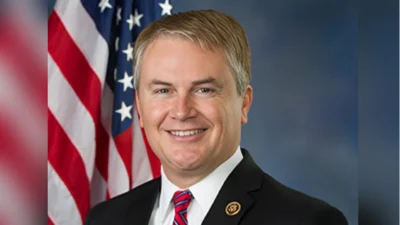Dear Ambassador Zoellick:
With the recent completion of negotiations of the United States-Central American FreeTrade Agreement (CAFTA), the focus of attention on this issue will now be shifting to theCongress.
I understand that the formal notification to Congress of the President’s intent to sign theCAFTA, as required by section 2105(a)(1) of the Trade Act of 2002, is imminent. It is also myunderstanding that the Administration intends to include the Dominican Republic in thatnotification, even though negotiations to “dock" the Dominican Republic into CAFTA are notcomplete.
All trade agreements raise challenging issues for Congress, and I do not expect CAFTAto be an exception. In order to assure that Congress can focus on the substance of the agreement,it is critical that applicable procedures be strictly observed.
I am concerned that the procedural short cuts being taken with respect to the DominicanRepublic could set the wrong tone for Congress’s consideration of CAFTA. The 90-day layoverperiod that follows the President’s notification of intent to sign a trade agreement exists in orderto allow Congress to consider the agreement, in its entirety, before the President takes the step offormally signing the agreement. Although the Dominican Republic is expected to accept the“rules" text of CAFTA in its entirety, negotiations on market access provisions will not concludeuntil at least March, and further delay can be anticipated prior to public release of the full text.
Congress will therefore not have access to a significant portion of the anticipated agreement withthe Dominican Republic until most of the 90-day review period has passed. Certainly, outsidethe “docking" scenario presented by the Dominican Republic, this approach would beunacceptable. In this instance, it raises serious questions about the Administration’s commitmentto a fully consultative process with Congress.
As you know, the Congressional process for reviewing and voting on trade agreementsincludes both statutory elements and elements of traditional practice. The statutory elementsinclude the notification, consultation, and “fast-track" procedures set out in the Trade Act of2002. The traditional procedures include the so-called “non-process" through whichCongressional committees of jurisdiction collaborate with the Administration to developappropriate implementing legislation for trade agreements.
Congress takes its Constitutional responsibility for trade very seriously. These statutoryand traditional procedures have been developed and improved upon over a period of 30 years toassure that Congress has adequate time and information to fulfill its responsibilities. Furtherattempts to shorten or avoid either statutory or traditional steps in the process for considering theCAFTA could jeopardize this time-tested working partnership.
I look forward to working with you to assure that trade agreements receive timely andthorough Congressional consideration consistent with these principles.
Sincerely,
Max Baucus








